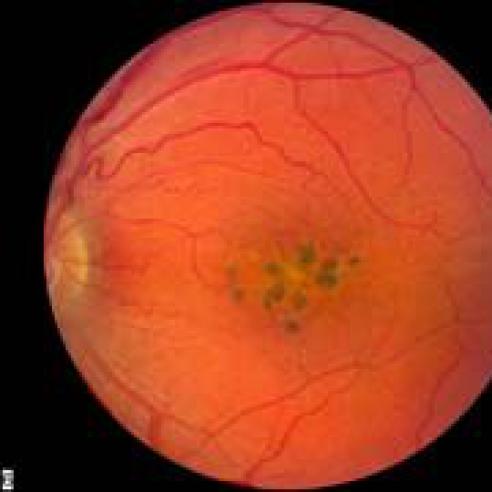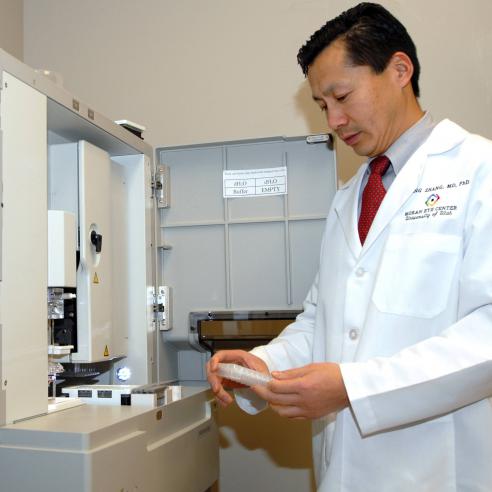RPB researchers are working to improve the management and early detection of diabetic retinopathy and diabetic macular edema.
Diabetic Retinopathy
Click one of the video selections to view.
An estimated 18 million American children and adults have diabetes. Within 10 years of diagnosis, 75 percent will have some degree of diabetic retinopathy. Diabetic retinopathy is caused by high blood sugar, which damages tiny blood vessels of the retina. In response, the body grows fragile new blood vessels (neovascularization) within the retina.
A person with diabetic retinopathy might notice symptoms only after damage is done. A doctor is usually able to detect retinal changes much sooner and can help prevent vision loss. Therefore, regular dilated eye exams are extremely important.
Diabetic retinopathy is the leading cause of new cases of blindness among people aged 20-74, but most vision loss due to diabetic retinopathy is preventable with early detection and intervention.
Symptoms of diabetic retinopathy may include blurred vision, changes in central vision, floating spots, and even sudden vision loss. The first two symptoms are caused by swelling (edema) of the macula, the part of the retina that gives us sharp central vision.
Related News: Diabetic Retinopathy

New Retinal Disease Discovered
RPB-supported researchers have found a new, rare inherited retinal disease. The investigators hope that finding the genetic cause will increase understanding of more common retinal diseases. The macula,...

New Vision Screening Device Provides Early Warning of Diabetic Eye Disease
RPB-supported research yields test that could give doctors and patients a head start on treating diabetes and...

Macular Degeneration, Diabetic Retinopathy Reversed
Two leading causes of blindness can be reversed or even prevented by drugs that activate a protein found in blood vessel cells. The discovery is an example of basic science research yielding a discovery with direct...
Subscribe
Get our email updates filled with the latest news from our researchers about preventing vision loss, treating eye disease and even restoring sight. Unsubscribe at any time. Under our privacy policy, we'll never share your contact information with a third party.
| General Info | Research Scientists & Grantees | Eye Care Specialists | Donors & Partners |



